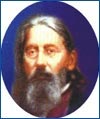Lemon. Rutacea.
A popular remedy with the Arabians.
“The Citrus Medica, like the orange-tree, is a native of Asia. It was introduced into Europe from Persia or Media, was first cultivated in Greece, afterwards in Italy, as early as the second century. It is considered almost a specific for prevention and cure of scurvy. Revillont, a French physician, recommends it as a gargle in diphtheritic affection of fauces, but states that it is without action on the white lenticular patches.” –U. S. D.
CLINICAL AUTHORITIES.
– Diphtheria, recommended by Buchner ; Dysentery, natives of Tchian, Persia, Ausland, p. 18, 1855 ; Dropsy and hydrothorax, Schwabe, Casper’s Wschrft., 1843, no. 8 ; Dropsy after scarlatina, Büttner, Pr. Medorrhinum Ztg., 1842, No. 26 ; Dropsy with splenitis, Gross, Hom. Arch., vol. 20, p. 178 ; Hydrothorax (two cases), Börner, Frank’s Mag., vol. 1, p. 1 ; Hydrothorax and general anasarca, Frank’s Mag., vol. 1, p. 157, Convulsions, caused by eating the seeds of Datura Stramonium, Rückert’s Hom. Therap., p. 377 ; Cancer, Denny, B. J. H., vol. 24, p. 518 ; Willis and Brondini ; Sunstroke, Medorrhinum Inves, vol. 8, p. 477.
Symptoms marked toxic are toxicological symptoms. See Encyclopedia.
MIND.
Women who are generally very attentive, suddenly become averse to domestic duties.
Insensibility.
INNER HEAD.
Headache occurs daily, compels her to lie down. θ Splenitis.
FACE.
Lividity of face , (toxic).
INNER MOUTH.
Scorbutis.
PALATE AND THROAT.
Throat is sore posteriorly and low down, < on waking.
Diphtheria.
APPETITE, THIRST, DESIRES, AVERSIONS.
Want of appetite. θ Splenitis.
HICCOUGH, BELCHING, NAUSEA AND VOMITING.
Empty eructations, particularly after eating. θ Splenitis.
SCROBICULUM AND STOMACH.
Scrobiculum painful to pressure of hand. θ Splenitis.
HYPOCHONDRIA.
Affections of spleen.
Painful enlargement of spleen.
ABDOMEN AND LOINS.
Ascites.
STOOLS AND RECTUM.
Constipation. θ Splenitis.
** Dysentery.
Hemorrhage from bowels and death, in dropsy following intermittent , (toxic).
Itching of anus from pin worms.
MALE SEXUAL ORGANS.
Itching of scrotum.
Dropsy of scrotum.
FEMALE SEXUAL ORGANS.
Itching of pudenda.
RESPIRATION.
Breathing in the form of gasping , (toxic).
Dyspnoea. θ Splenitis.
INNER CHEST AND LUNGS.
Great dyspnoea, almost suffocation ; sits with face bent over as far as possible ; unconsciousness ; dry skin ; cold sweat on face and arms. θ Hydrothorax following metritis.
Hamoptysis , (toxic).
Hydrothorax.
HEART, PULSE AND CIRCULATION.
Heart beating very feebly ; absence of pulse at wrist , (toxic).
LOWER LIMBS.
Excessive dropsy of legs from ankle to knee (from eating lemons daily for months).
LIMBS IN GENERAL.
Stiffness of joints, particularly in fingers ; bruised feeling, particularly in feet ; she is averse to domestic duties.
REST, POSITION, MOTION.
Daily headache compels lying down.
Great dyspnoea ; sits with face bent over as far as possible.
NERVES.
Great prostration and collapse , (toxic).
Convulsions from poisoning by Stramonium.
FEVER.
** Typhus.
** Intermittent fever (lemon-juice with coffee during the apyrexia).
ATTACKS, PERIODICITY.
Headache daily.
Intermittent fever.
SENSATIONS.
Bruised feeling : in joints, particularly in feet.
Soreness : of throat, posteriorly and low down.
Stiffness : of joints, particularly in fingers.
Itching : of anus from pin worms ; of scrotum ; of pudenda.
Dryness of skin.
TISSUES.
** Citric acid was applied with good results to assuage pain in three cases of cancer.
** Malignant cancer, which commenced some years since as an enlarged submaxillary gland, supposed to be caused by a carious tooth, pain at times excessive.
Lotion of citric acid, one drachm to eight ounces of water, and mouth rinsed out as often as pleased, afforded perfect relief from pain.
** Pain from cancer of tongue ; also affords instantaneous relief in other affections ; is, however, not curative.
** Useful as a gargle in diphtheria, causing detachment of the false membranes, decrease of the glandular enlargement and rapid recovery.
A man who was sun struck near the Dead Sea, heat being 125.5°F., was treated by a Bedoin guide, who bathed his hands, head and face with lemon-juice, after which he was able to ride two hours, to the banks of the Jordan, where he could rest for several hours, and there completely recovered.
TOUCH, PASSIVE MOTION, INJURIES.
Scrobiculum painful to pressure of hand.
SKIN.
Dry skin, with cold sweat on face and arms. θ Hydrothorax.
General surface of body cold.
Dropsy, particularly of chest, and after scarlatina.
Herpetic eruption.
STAGE OF LIFE, CONSTITUTION.
A woman, at. 35 ; hydrothorax.
A farmer’s wife, at. 60 ; hydrothorax.
Innkeeper, at. 64, drank much beer and whisky ; hydrothorax and general anasarca.
Man, at. 75 ; dropsy.
RELATIONS.
Antidoted by : Aconite, Asarum, Datura, Euphorb., Hepar, Sepia.
It antidotes : Acon. (diuresis of), Euphorb., Stramon., snake bites and all animal poisons.
Compatible : after Bellad. (increases curative effects, especially in women in childbed).
Compare : Acet. ac. (dropsies), Bellad., Laches., Mercur.
“NOTE:
PLAIN TEXT : LOWEST & DESIGNATES AN OCCASIONALLY CONFIRMED SYMPTOMS;
Plain blue: MORE FREQUENTLY CONFIRMED;
BOLD BLUE : SYMPTOMS VERIFIED BY CURES;
BOLD RED : REPEATEDLY VERIFIED;
$BOLD ITALIC RED$ : AN APPROVED CHARACTERISTIC;
θ : STANDS BETWEEN CURED SYMPTOM & PATHOLOGICAL CONDITION;
** : OBSERVED FROM OLD SCHOOL OR NEW SCHOOL;
toxic : Toxicology;
r : Right;
l : Left;
< : Increased or aggravation;
> : Decrease or amelioration;
^^ : Symptoms observed only on the sick “

